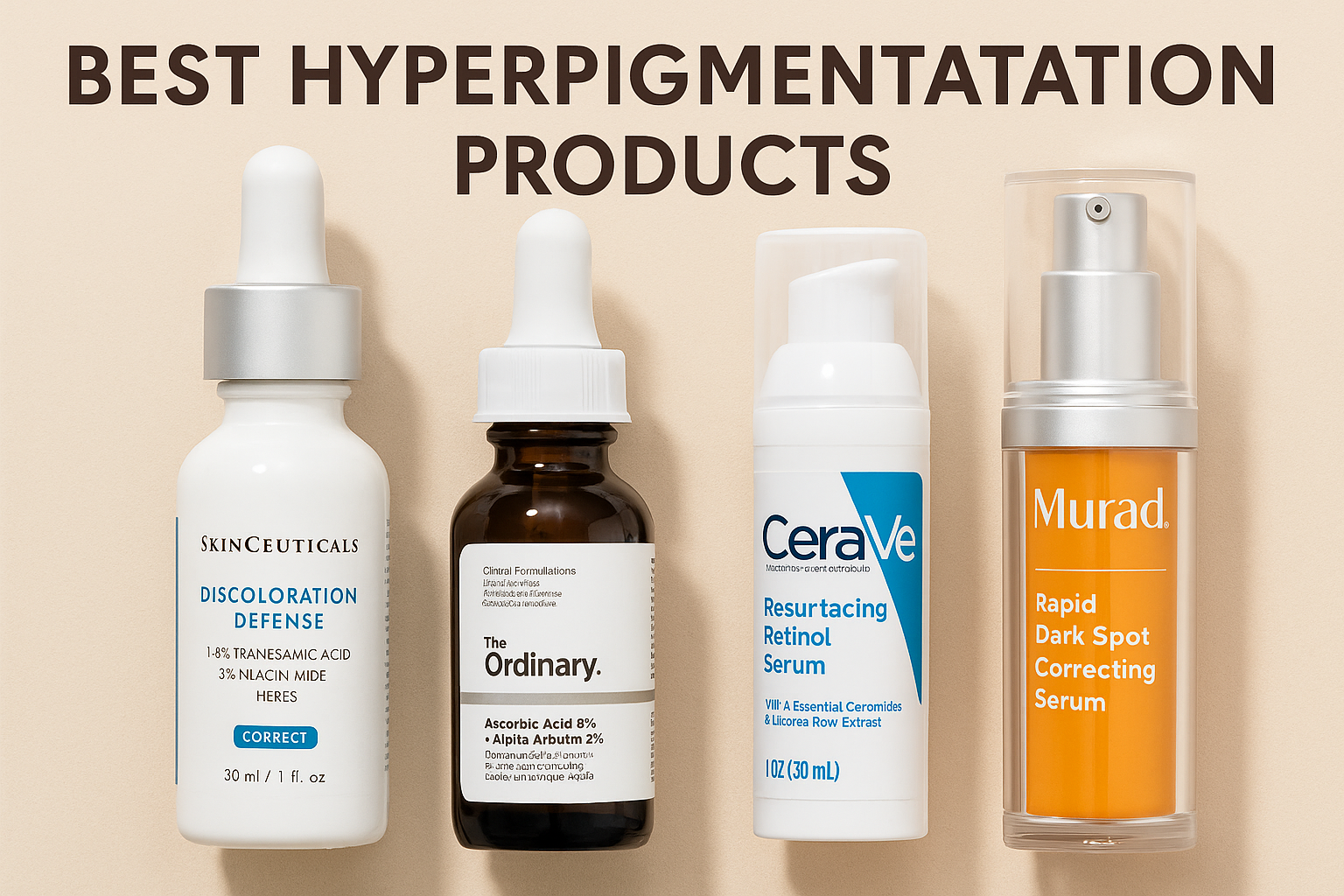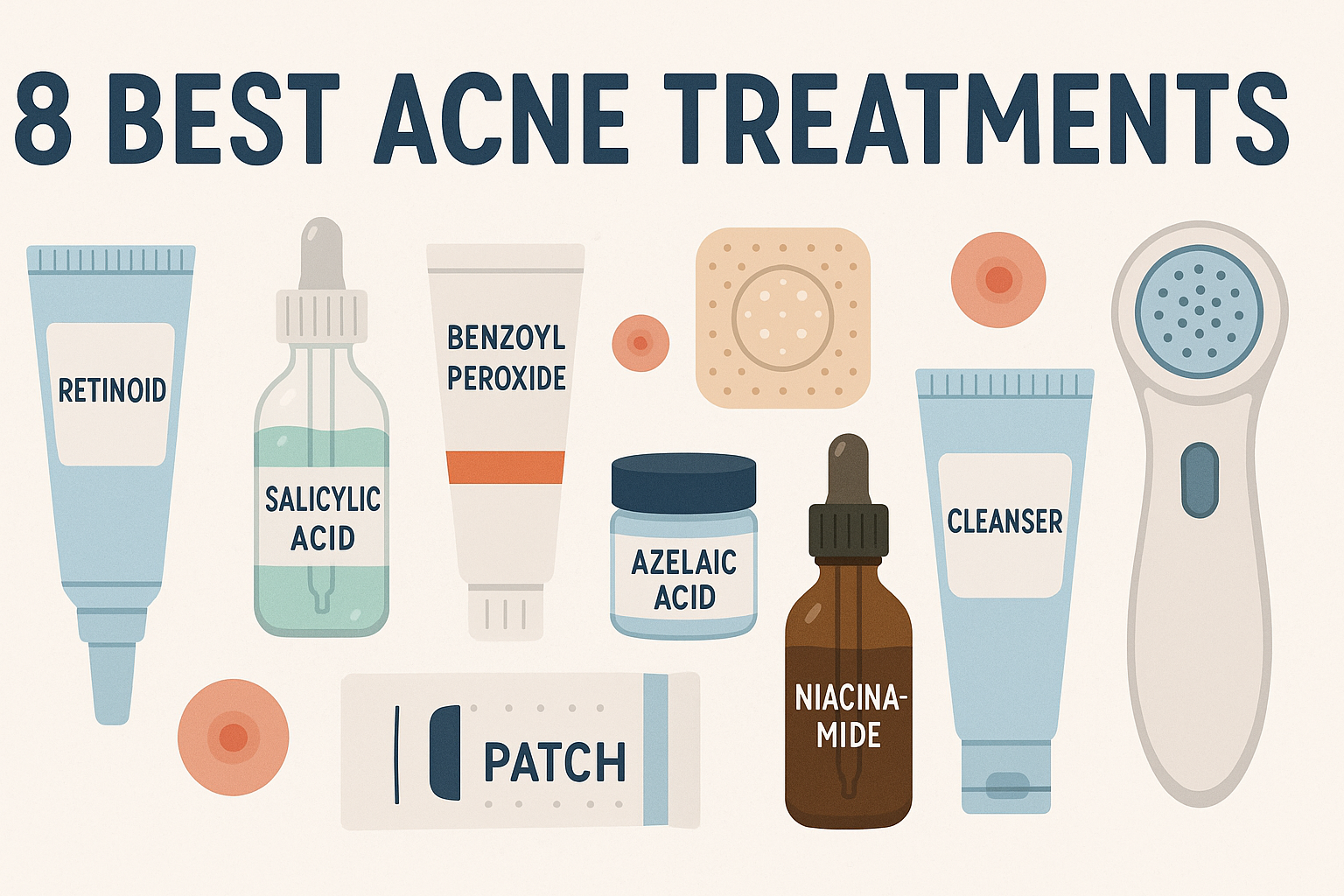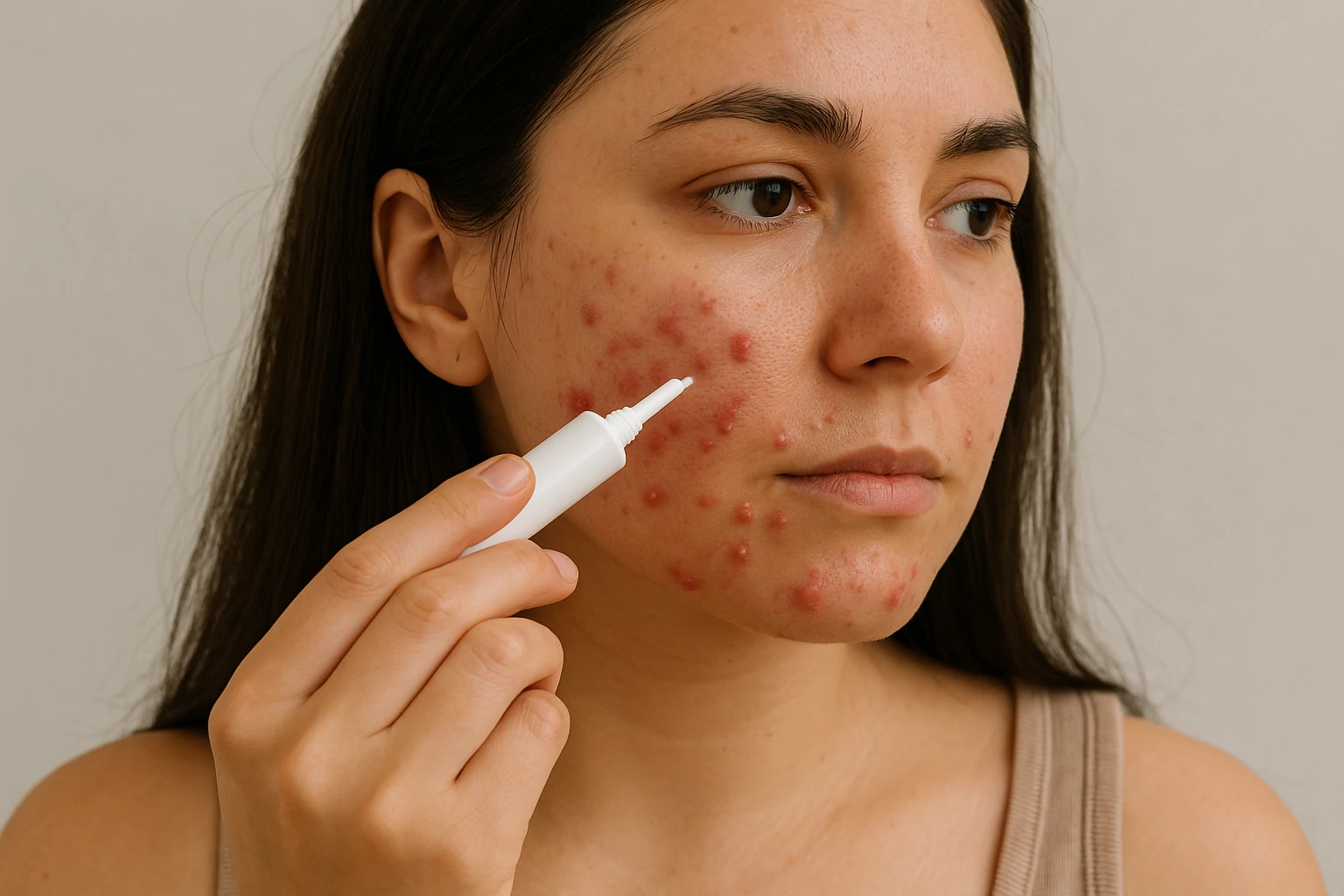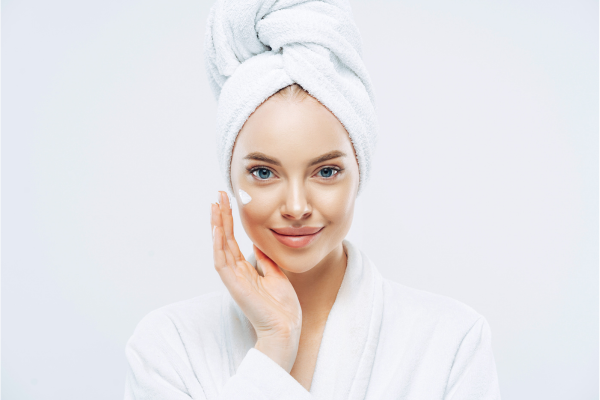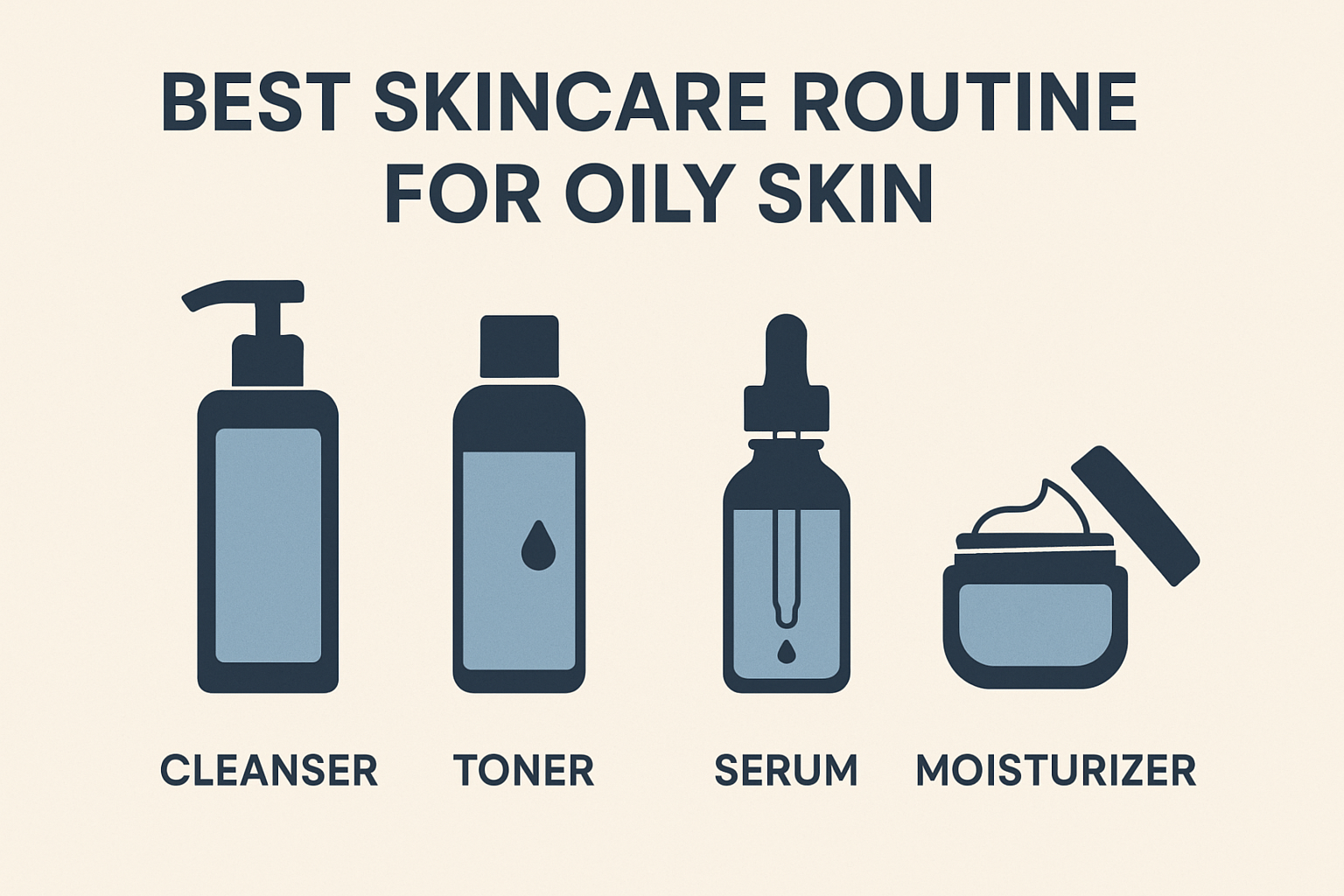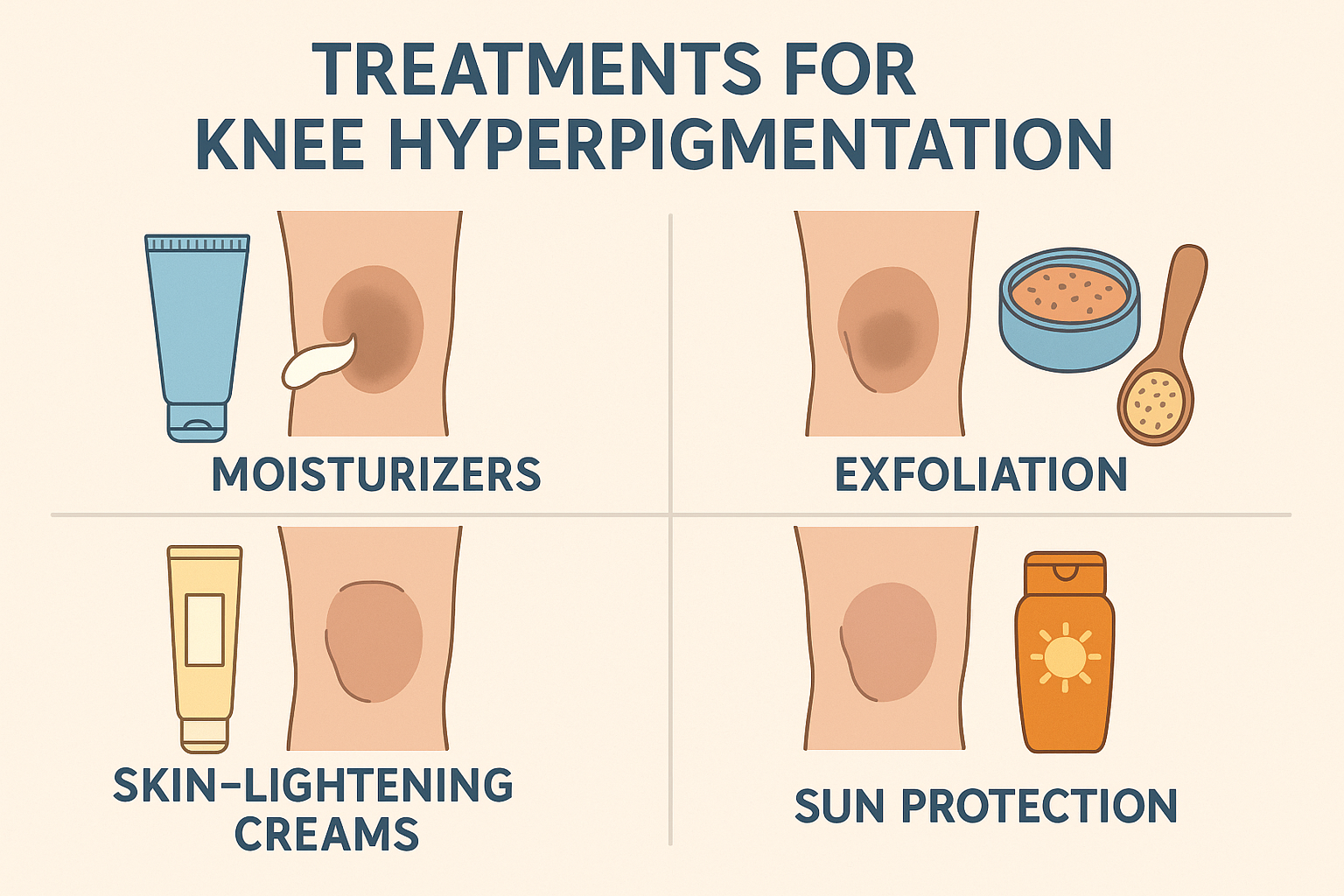How to Use Antioxidants for Anti-Aging and Glowing Skin
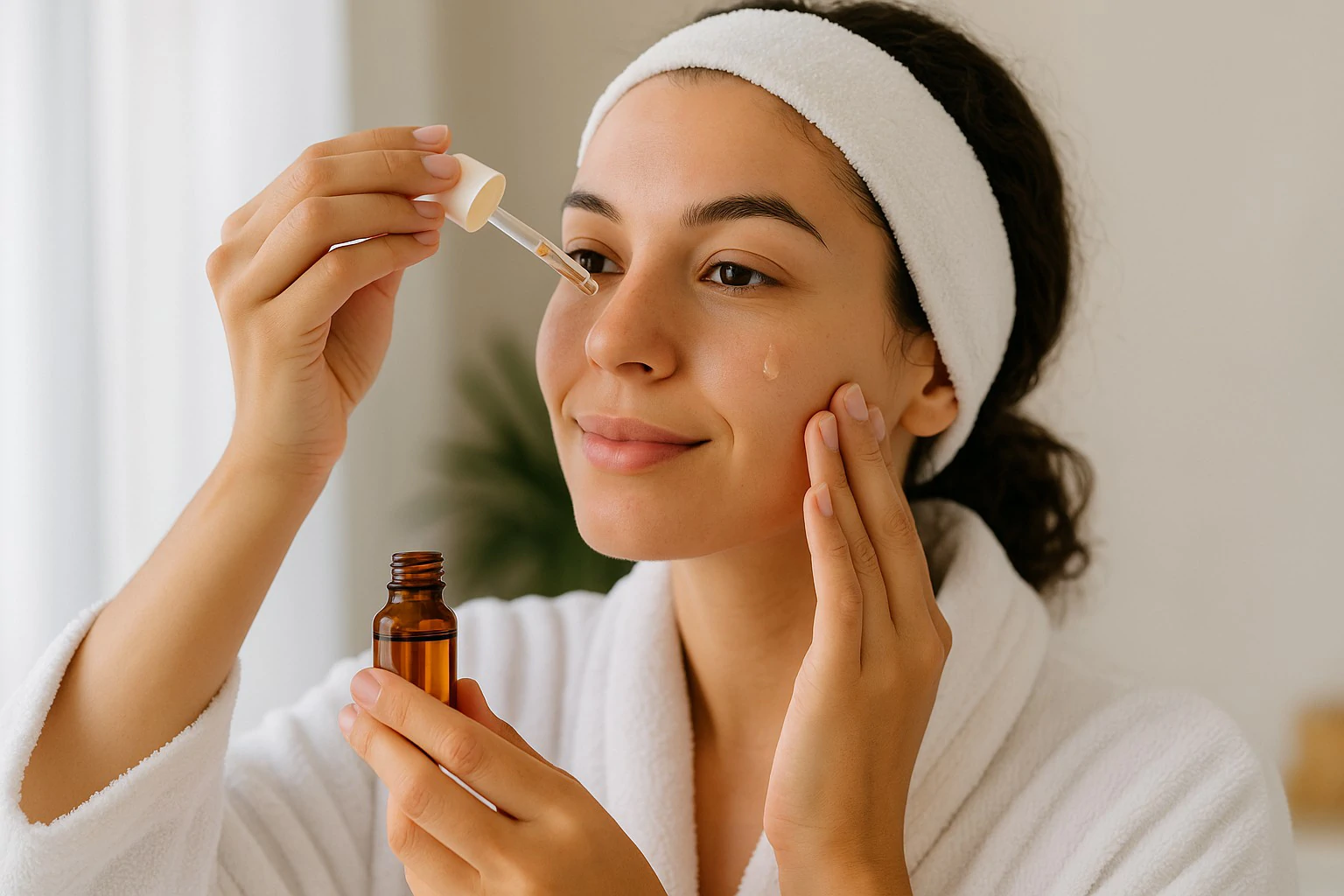
In modern dermatology, antioxidants are widely recognized as essential agents in maintaining skin health and slowing down the visible signs of aging. These powerful molecules work by neutralizing free radicals—unstable compounds that can damage skin cells and accelerate aging.
Free radicals are triggered by daily environmental aggressors like UV exposure, pollution, stress, and poor lifestyle habits. Without antioxidant protection, your skin becomes more vulnerable to fine lines, dullness, inflammation, and even dark spots.
Dermatologists often recommend antioxidant-rich ingredients such as vitamin C, vitamin E, niacinamide, and resveratrol. These compounds help stimulate collagen production, brighten dull skin, and shield it from irritation and cellular damage.
If you haven’t incorporated antioxidants into your skincare yet, now is the perfect time to start. Experts suggest applying antioxidant serums in the morning, right before sunscreen, to provide optimal protection against environmental stressors throughout the day.
With consistent use, your skin will appear brighter, healthier, and better protected against premature aging.
What Are Antioxidants in Skincare?
Antioxidants in skincare are protective molecules that help neutralize free radicals—harmful compounds that can damage your skin at a cellular level. These free radicals are commonly triggered by sun exposure (UV rays), air pollution, and oxidative stress caused by unhealthy habits or chronic stress.
In medical science, it’s well-documented that free radicals can disrupt the DNA within cells. On your skin, this damage appears as premature aging, wrinkles, dullness, and an increased risk of skin conditions, including skin cancer.
That’s why antioxidants are so vital in any skincare routine. You’ll find them in many products—serums, moisturizers, toners, facial oils, and even sunscreens.
Dermatologists recommend using antioxidants daily in the morning, layered underneath your sunscreen. This combination acts like a double shield, protecting your skin while also reinforcing its natural barrier. The result? Healthier, glowing, and more youthful-looking skin.
How Do Antioxidants Work?
Antioxidants act like the skin’s defense system. They neutralize free radicals before those unstable molecules can harm healthy skin cells.[1Hanvard Health Publishing: Understanding antioxidants.] In dermatological terms, free radicals are known contributors to oxidative stress, which not only accelerates aging but also weakens your skin’s natural barrier.
Free radicals are produced when your skin is exposed to UV rays, pollution, harsh chemicals, or even emotional stress. Over time, these molecules can damage your DNA, break down collagen, and cause skin inflammation or pigmentation.
Experts explain that antioxidants intercept and bind with these harmful radicals, preventing further damage. Some antioxidants even help repair existing skin damage and boost the immune response of your skin.
When used consistently, antioxidant skincare helps your skin stay strong, resilient, and visibly youthful—even in the face of daily environmental stress.
What Are the Benefits of Antioxidants?
Antioxidants play a major role in keeping your skin healthy, radiant, and youthful. Backed by scientific research, these compounds not only prevent skin damage but also promote healing and rejuvenation.
Here are some of the key skincare benefits of antioxidants:
- Reduces inflammation
Antioxidants like niacinamide and green tea extract have anti-inflammatory properties that help calm redness and irritation—especially useful for sensitive or acne-prone skin. - Brightens skin tone
Vitamin C is well-known for fading dark spots and evening out skin tone, resulting in a natural glow and brighter complexion. - Improves skin texture
By fighting free radicals, antioxidants help smooth out fine lines and rough patches, making your skin feel softer and look more refined. - Boosts elasticity and hydration
Certain antioxidants support collagen production and help maintain moisture levels, keeping your skin firm and plump. - Fights visible signs of aging
Antioxidants help fade hyperpigmentation, reduce dark spots, and protect your skin from future damage—keeping it looking fresh and youthful.
Incorporating antioxidant ingredients into your routine doesn’t just protect your skin—it enhances your entire skincare journey.
The Best Antioxidants to Add to Your Skincare Routine
When it comes to choosing antioxidant skincare, not all ingredients are created equal. Some antioxidants are particularly effective and widely studied in dermatology for their benefits in both protection and rejuvenation.
Let’s explore one of the most powerful and popular antioxidants:
1. Vitamin C: Brightening Powerhouse for Daytime Skincare
Vitamin C stands out as one of the most effective and trusted antioxidants in skincare—especially for daytime use. It targets free radicals caused by UV exposure and pollution, making it a perfect match for your morning routine.
When layered with sunscreen, vitamin C amplifies your skin’s defense system, offering dual protection against environmental stress.
In clinical practice, vitamin C is praised for its ability to naturally brighten the skin and fade dark spots caused by sun damage or uneven pigmentation. It also promotes collagen synthesis, which is essential for maintaining firm, youthful skin.
According to dermatologists, regular use of a well-formulated vitamin C serum can visibly reduce fine lines and wrinkles while enhancing your overall complexion.
For best results, opt for serums with stable concentrations of vitamin C (such as L-ascorbic acid), and make sure the packaging is air-tight and light-protective to preserve its potency.
2. Vitamin E: Antioxidant + Natural Moisturizer for Skin Repair
Vitamin E is a powerful antioxidant that also acts as a natural emollient—meaning it helps soften and smooth the skin while protecting it from free radical damage. In skincare formulations, vitamin E is often paired with other antioxidants like vitamin C. When combined, these ingredients create a synergistic effect, enhancing each other’s ability to protect and repair skin cells.
According to dermatology experts, this antioxidant duo helps strengthen the skin’s defense against oxidative stress while supporting natural skin regeneration. Vitamin E is also known for its soothing properties—it helps relieve dry skin, accelerates healing of micro-tears, and keeps the skin barrier strong and intact.
However, it’s important to note that vitamin E may not suit every skin type. People with oily or acne-prone skin might experience clogged pores or mild irritation. That’s why a patch test is highly recommended before incorporating it into your daily routine.
3. Ferulic Acid: Anti-Aging Booster That Enhances Other Antioxidants
Ferulic acid is a potent antioxidant often found in high-performance skincare products, particularly those targeting signs of aging. It helps reduce the appearance of fine lines, wrinkles, sun spots, and uneven skin tone caused by UV exposure and pollution.
What sets ferulic acid apart is its ability to enhance the stability and effectiveness of other antioxidants, especially vitamin C and vitamin E. When these ingredients are combined in a single formula, they provide amplified protection against oxidative damage and environmental stress.
Skincare professionals also highlight its anti-inflammatory benefits. Ferulic acid can help calm irritated skin while reinforcing the skin barrier—making it a top choice in anti-aging serums aimed at total skin revitalization.
4. Resveratrol: Plant-Based Antioxidant for Youthful, Resilient Skin
Resveratrol is a natural antioxidant derived from red grape skin, berries, and certain plants. It’s considered one of the most potent antioxidants in skincare, particularly for fighting the damaging effects of free radicals.
Beyond its protective powers, resveratrol supports collagen production—essential for maintaining skin firmness and elasticity. With regular use, it helps your skin look smoother, plumper, and more resilient against premature aging.
Dermatologists also value resveratrol for its anti-inflammatory properties, which help soothe sensitive or irritated skin. It works well to reduce redness, improve skin tone, and strengthen the skin’s natural barrier function.
Thanks to its high stability, resveratrol is often found in nighttime products like serums and anti-aging creams, where it works overnight to restore and regenerate your skin.
5. Bakuchiol: Gentle Natural Alternative to Retinol
Bakuchiol is a plant-based antioxidant derived from Psoralea corylifolia and is often referred to as a natural alternative to retinol. What makes bakuchiol especially appealing is that it offers anti-aging benefits without the harsh side effects commonly associated with retinoids.
Clinically, bakuchiol has been shown to reduce the appearance of fine lines and wrinkles, firm up the skin, and improve overall texture and tone. It also supports skin cell turnover, helping to reveal a fresher, more refined complexion over time.
One of bakuchiol’s biggest strengths is its gentleness—making it an ideal option for sensitive skin or those who can’t tolerate traditional retinol. Plus, unlike retinoids, bakuchiol doesn’t increase sun sensitivity, so it can be safely used both morning and night.
You’ll find bakuchiol in many plant-based skincare formulas, including anti-aging serums, moisturizers, and night creams.
6. Niacinamide (Vitamin B3): Versatile Antioxidant for Balanced, Clear Skin
Niacinamide, also known as vitamin B3, is a multifunctional skincare ingredient with a strong reputation for improving overall skin health. Not only does it act as an antioxidant, but it also helps reinforce the skin barrier and even out skin tone.
In dermatology, niacinamide is frequently recommended for reducing dark spots, fading acne marks, and calming redness. It’s especially effective for managing hyperpigmentation caused by sun exposure or post-inflammatory discoloration from breakouts.
What makes niacinamide so widely loved is its versatility. It helps regulate oil production, retains skin moisture, and enhances elasticity—all while being gentle enough for sensitive and acne-prone skin types.
You’ll find niacinamide in a variety of products—serums, toners, and daily moisturizers—and it’s safe to use both in the morning and at night as part of your everyday skincare routine.
7. Green Tea: Soothing Antioxidant for Sensitive and Acne-Prone Skin
Green tea is a natural source of antioxidants from the polyphenol family, highly valued in skincare for its calming and gentle properties. Its key compound, EGCG (epigallocatechin gallate), is known to effectively combat oxidative stress caused by pollution, UV rays, and other environmental triggers.
In dermatological practice, green tea is often recommended for sensitive or easily irritated skin due to its strong anti-inflammatory effects. It helps reduce redness, soothe irritation, and support the skin’s protective barrier.
Experts explain that green tea antioxidants work by neutralizing free radicals while also promoting cellular repair. The result is skin that feels calm, refreshed, and naturally radiant.
You’ll often find green tea extract in toners, serums, and moisturizers specifically formulated for sensitive or acne-prone skin.
Can You Use Antioxidants With Other Actives?
Yes, antioxidants can be combined with other active ingredients to enhance the effectiveness of your skincare routine. In fact, many combinations offer complementary benefits. For example, vitamin C and vitamin E are frequently paired together—and even more powerful when combined with ferulic acid—for stronger antioxidant protection.
Similarly, niacinamide works well alongside various antioxidants to help improve skin texture and tone.
However, it’s essential to note that not all actives pair well for every skin type. Ingredients like retinoids or AHA/BHA acids can cause irritation if used simultaneously with certain antioxidants, especially for sensitive skin.
Dermatologists advise paying close attention to layering order and timing. If in doubt, use active ingredients at different times—such as applying antioxidants in the morning and retinoids at night—or consult with a skincare professional to tailor your routine safely.
1. Ingredients to Avoid Using With Antioxidants
While antioxidants are highly beneficial for the skin, not all ingredients mix well with them. Some antioxidants—like vitamin C—are pH-sensitive and unstable. When combined with incompatible actives, their effectiveness may decrease, or they might cause irritation.
For instance, vitamin C in its pure form (L-ascorbic acid) has a low pH and may not work well when layered directly with acids like AHA, BHA, or even retinol—especially if your skin is sensitive. These combinations can increase the risk of redness, dryness, or stinging.
To avoid irritation, dermatologists recommend alternating usage. Apply vitamin C in the morning, and reserve exfoliants or retinoids for nighttime. If your skin still feels irritated, reduce the frequency—perhaps every other day—allowing your skin time to recover and adapt.
Understanding ingredient compatibility is key to building a safe and effective skincare routine.
2. Ingredients You Can Use With Antioxidants
Combining antioxidants with the right skincare ingredients can significantly boost your results—if done thoughtfully. In dermatology, vitamin E and ferulic acid are known to work synergistically with vitamin C, making them ideal for morning routines when paired with broad-spectrum sunscreen, especially those containing zinc oxide.
Vitamin A (retinol) can also be used with calming antioxidants like niacinamide or resveratrol. These soothing agents help reduce irritation commonly associated with retinoids. Just remember—retinol should be applied at night since sunlight can reduce its potency.
Antioxidants also pair exceptionally well with SPF. Layering an antioxidant serum under your sunscreen provides double protection against free radical damage. For added hydration, combine antioxidants with hyaluronic acid to help smooth fine lines and lock in moisture.
For those dealing with dullness or uneven skin tone, mixing antioxidants with azelaic acid can brighten your complexion and fade dark spots more effectively.
Recommended Skincare Products with Antioxidants
Thanks to their ability to fight free radicals, repair damaged skin, and slow signs of aging, antioxidants have become a cornerstone in many skincare routines. Choosing the right antioxidant-rich product can make a noticeable difference in your skin’s health and appearance.
Here are some dermatologist-recommended antioxidant skincare products worth trying:
- Skinceuticals C E Ferulic
A cult-favorite antioxidant serum combining vitamin C, vitamin E, and ferulic acid. Clinically proven to brighten skin and defend against UV damage. - Kiehl’s Powerful-Strength Line-Reducing Concentrate
Formulated with 12.5% vitamin C and hyaluronic acid to smooth fine lines and hydrate the skin. Ideal for daily use to improve texture and radiance. - The Ordinary Resveratrol 3% + Ferulic Acid 3%
A budget-friendly option with high concentrations of effective antioxidants. Perfect for protecting skin from environmental stressors. - Paula’s Choice Super Antioxidant Serum
Lightweight and suitable for sensitive skin. Contains a blend of green tea extract and stabilized vitamin C derivatives—great for antioxidant beginners.
Dermatologists recommend choosing products that match your skin concerns and using them consistently. For best protection, apply antioxidant serums in the morning under sunscreen to maximize their environmental defense.
Conclusion
Incorporating antioxidants into your daily skincare routine is one of the smartest decisions you can make—especially if you’re just starting your skincare journey. These powerhouse ingredients not only protect your skin from environmental damage but also help brighten, smooth, and slow the signs of aging.
Whether you choose vitamin C for radiance, niacinamide for even tone, or green tea for calming benefits, antioxidants work in harmony with your skin to keep it healthy, strong, and glowing. When used consistently—especially in the morning under sunscreen—they build a reliable defense against UV rays, pollution, and stress.
The best part? There’s an antioxidant out there for every skin type and concern. From sensitive skin to acne-prone or dull complexions, these ingredients can be tailored to meet your unique needs.
So if you haven’t already, now is the perfect time to explore antioxidant skincare and give your skin the long-term protection and glow it deserves.
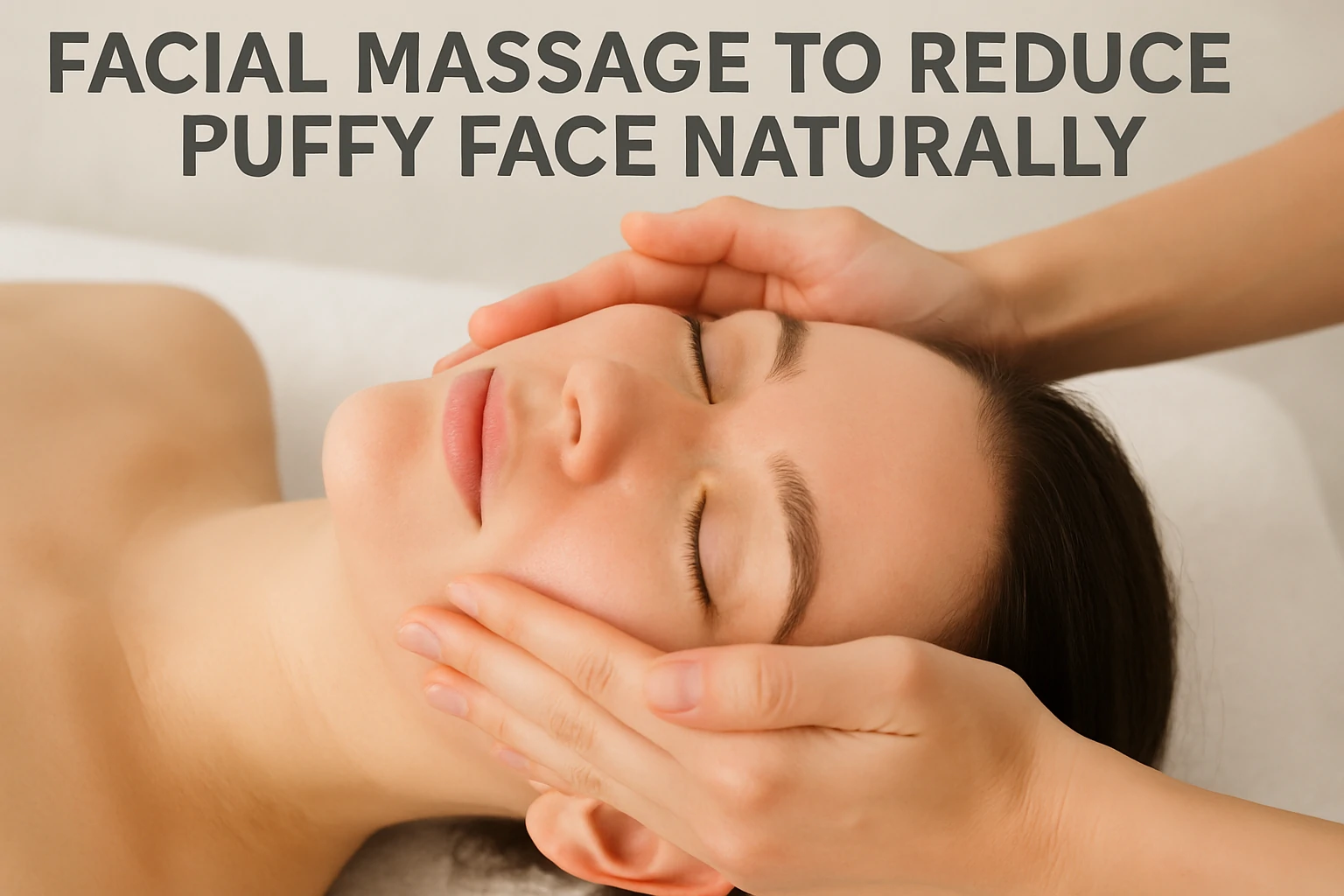
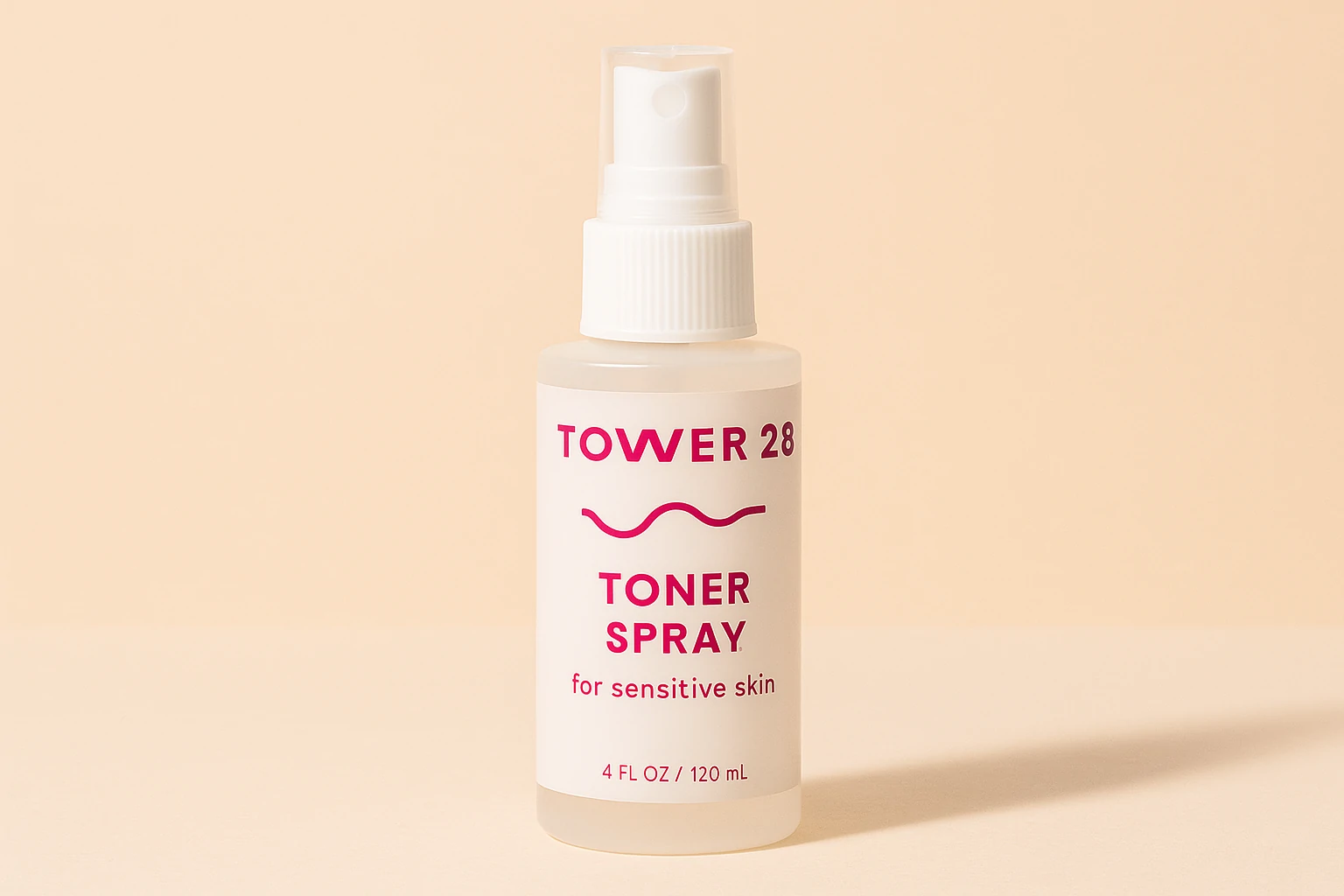
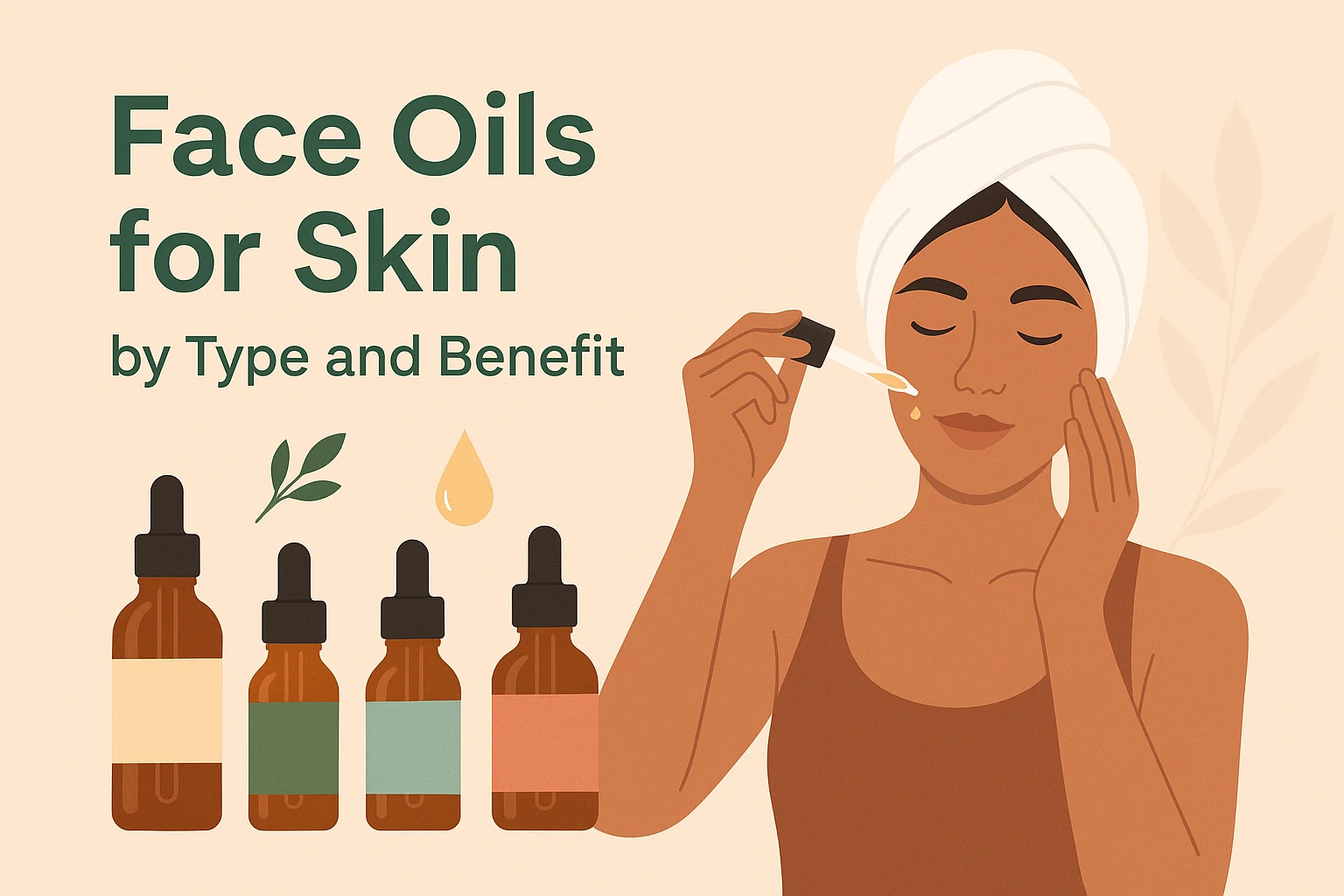


 Acne
Acne Anti-Aging
Anti-Aging Business
Business Digital Marketing
Digital Marketing Economics
Economics Exfoliation
Exfoliation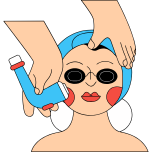 Hair Removal
Hair Removal Movies
Movies Personal Finance
Personal Finance Websites
Websites
